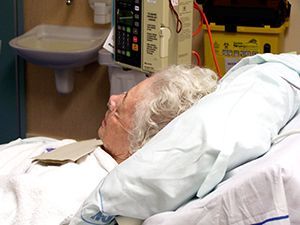 Daily News, August 2012
Daily News, August 2012
Long considered the most effective cancer-fighting treatment, chemotherapy may actually make cancer worse, according to a new study.
The extremely aggressive therapy, which kills both cancerous and healthy cells indiscriminately, can cause healthy cells to secrete a protein that sustains tumor growth and resistance to further treatment.
Researchers in the USA made the 'completely unexpected" finding while seeking to explain why cancer cells are so resistant inside the human body when they are so easy to kill in the lab.
They tested the effects of a type of chemotherapy on tissue collected from men with prostate cancer and found evidence of DNA damage in healthy cells after treatment, the scientist wrote in Natural Medicine. Chemotherapy works by inhibiting reproduction of fast-dividing cells such as those found in tumors.
The scientist found that healthy cells damaged by chemotherapy secreted more of a protein called WNT16B which boosts cancer cell survival. "The increase is WNT16B was completely unexpected," study co-author Peter Nelson of the Fred Hutchinson Cancer Research Center in Seattle told AFP.
The protein was taken up by tumor cells neighboring the damaged cells.
"WNT16B, when secreted, would interact with nearby tumor cells and cause them to grow, invade and most importantly, resist subsequent therapy," said Nelson.
In cancer treatment, tumors often respond well initially, followed by re-growth and then resistance to further chemotherapy.